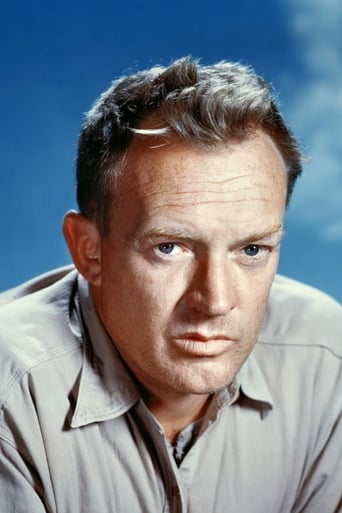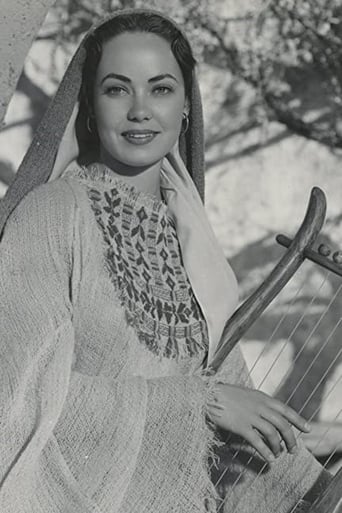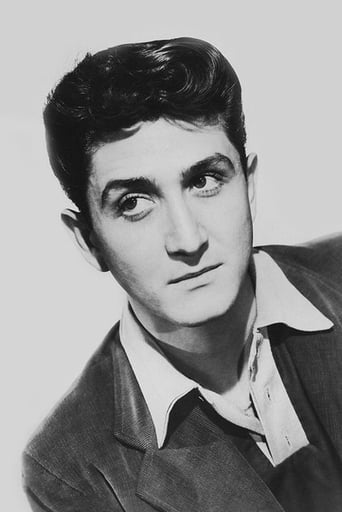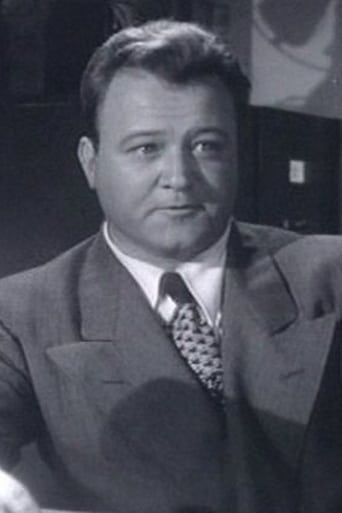Konterr
Brilliant and touching
ShangLuda
Admirable film.
CrawlerChunky
In truth, there is barely enough story here to make a film.
Dirtylogy
It's funny, it's tense, it features two great performances from two actors and the director expertly creates a web of odd tension where you actually don't know what is happening for the majority of the run time.
dougdoepke
The movie's not a western in the usual sense. Instead, it's more like a pondering of character and life-styles set in modern Mexico. Manuel and Maria are in an arranged marriage, she being passed along like a piece of property, he being a budding farm entrepreneur. They are above all "respectable", and the feeling is that this is what holds the marriage together. Then, into their settled life arrives escaping train robber Santiago. But he's not a typical robber. We know that from his buddy's moving death scene. There Santiago shows something of a poetic sensitivity, proving he's not without his own sense of values. In fact, he's more a free spirit than a criminal type, even giving away much of his loot to deserving strangers. Ironically, however, he appears unfree to be anything but free! It's Santiago's free-wheeling effect on the young couple's brittle marriage that makes up the storyline. Kennedy, of course, was one of that era's premier actors. Here, his bravura performance effectively dramatizes Santiago's free spirit gusto. On the other hand, as the young couple, Iglesias and St. John appear over-the-top at times. Perhaps that can be rationalized by their emotional release from repressed lives. Nevertheless, the emoting does at times distract from story advancement.The notion of respectability is also pondered here. What the screenplay seems to be saying is that conforming lives are okay as long as one's humanity is not sacrificed in the process. In his own eccentric way, this appears the lesson Santiago imparts to the young couple. At the same time, religion gets much the same treatment, while criminal Santiago acts poetically as a kind of secular priest in easing his dying confederate into the great unknown.All in all, the movie's distinctive features come more from blacklisted writer Zimet's offbeat screenplay than from cult director Ulmer who's required to film in Technicolor instead of his b&w forte. Nonetheless, the movie's fully deserving of the Ulmer brand-- an offbeat 80-minutes that manages some depth over and above its tacky 50's title.
MartinHafer
Santiago (Arthur Kennedy) is a good-hearted bandit...if there actually is such a thing. And when he meets up with Manuel and his wife, he leads the very meek Manuel into life on the wild side. While Manuel has always been very righteous, soon he starts to enjoy the idea of wealth and soon his true, violent and selfish side comes out after making this new friendship. But he's not the only one affected by Santiago's arrival...as soon Manuel's wife, Maria, has fallen for this new mystery man! What's to come of all this?While this could have been a nice little morality tale about greed, it suffers in several ways. Its pacing is not great and has some slow moments or scenes that could have been excised. At times, the Mexicans seemed awfully silly and stereotypical. Also, occasionally the acting is a bit overwrought...though I must admit that I was surprised that Kennedy was actually pretty good in the lead...playing the Bandito.
Edgar Soberon Torchia
If for the first half of this drama, you can go through the typical Hollywood depiction of Mexico and its people (dancing flamenco and shouting "Olé"), you will enjoy this tale of greed and treason among common folks, related to one another in different ways. Never mind the mixture of Spanish elements with the Mexican: the description of Mexican culture (which is key to the story, though not essential) is not even offensive, but plainly cheap, funny and sometimes embarrassing for the cast, although Charlita seems to enjoy every minute of her part as a kind of Tongolele lost in a dusty cantina. Since the central plot is interesting enough by itself, we can overlook all the kitsch, for what is being told is universal: how human beings can become negative from one moment to the next, by ambition and lust for material possession. All the three leads are quite effective. I really had never seen Arthur Kennedy so good in a role, practically having the whole film on his shoulders; beautiful Betta St. John is a bit out of range in her dramatic scenes, but she is more convincing here than in those Tarzan movies with Gordon Scott; while Eugene Iglesias is intense enough to suggest the emergence of a lout in less than half a day. As in all of Edgar G. Ulmer's films, no matter how big or small the budget, the visuals are good. The ingredient I enjoyed the less was the proto-Morriconesque score by composer Herschel Burke Gilbert, who could have benefited by going to Plaza Garibaldi in México City and have some tequila and tacos, sing with a mariachi band, and listen to rancheras and other typical Mexican musical forms.
dynaman
This movie provides the viewer with an opportunity to see a truly gifted,if unsung actor, in a role that he owns. Arthur Kennedy played many supporting roles in the 40's and 50's and was nominated five times for an Oscar as Best Supporting Actor. During that time he acted for most of the outstanding directors of the period and with actors like Mitchum,Sinatra,Douglas,to name a few. Long overdue for a memorable starring role, he finally has the lead in this movie. As Santiago he demonstrates how callousness and gentleness of spirit can reside believably in the same person. His contact with th peasant couple ultimately changes forever their views of the future as well as his own and final redemption. This is a movie one can see only on TV late shows. A pity, but if you're lucky enough to catch it, you'll be rewarded. Guaranteed.





